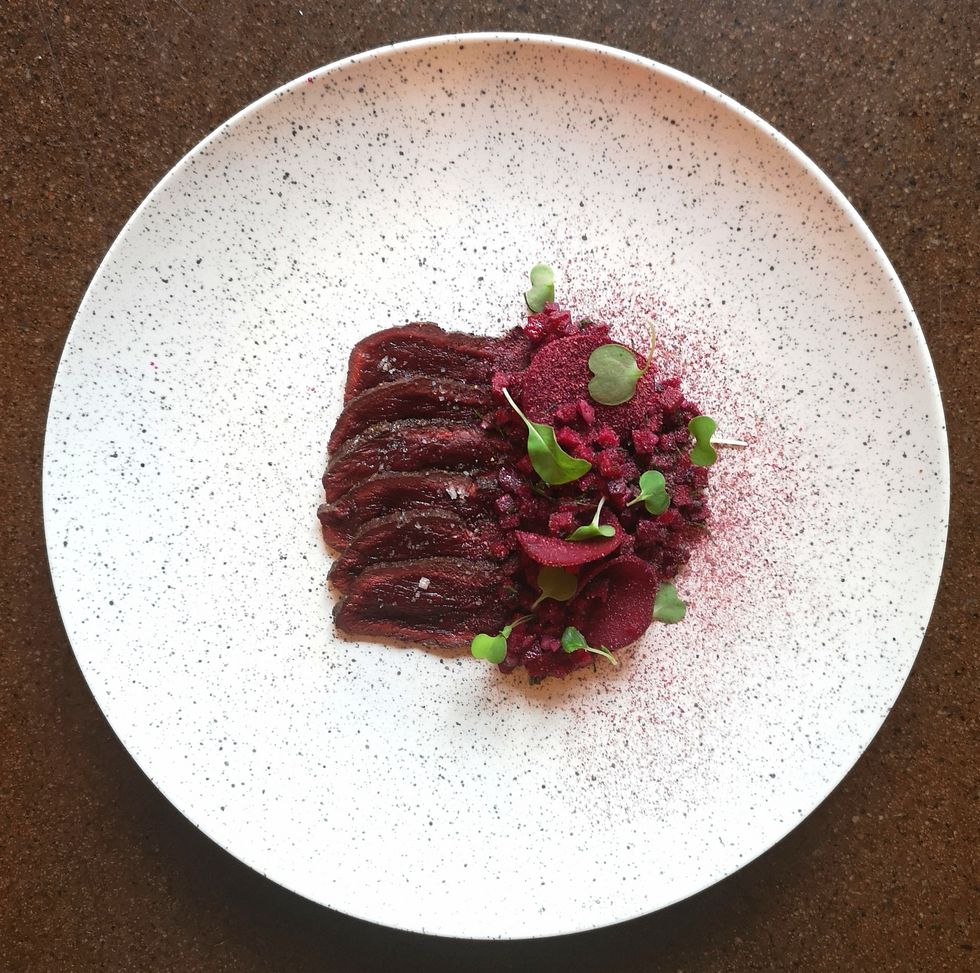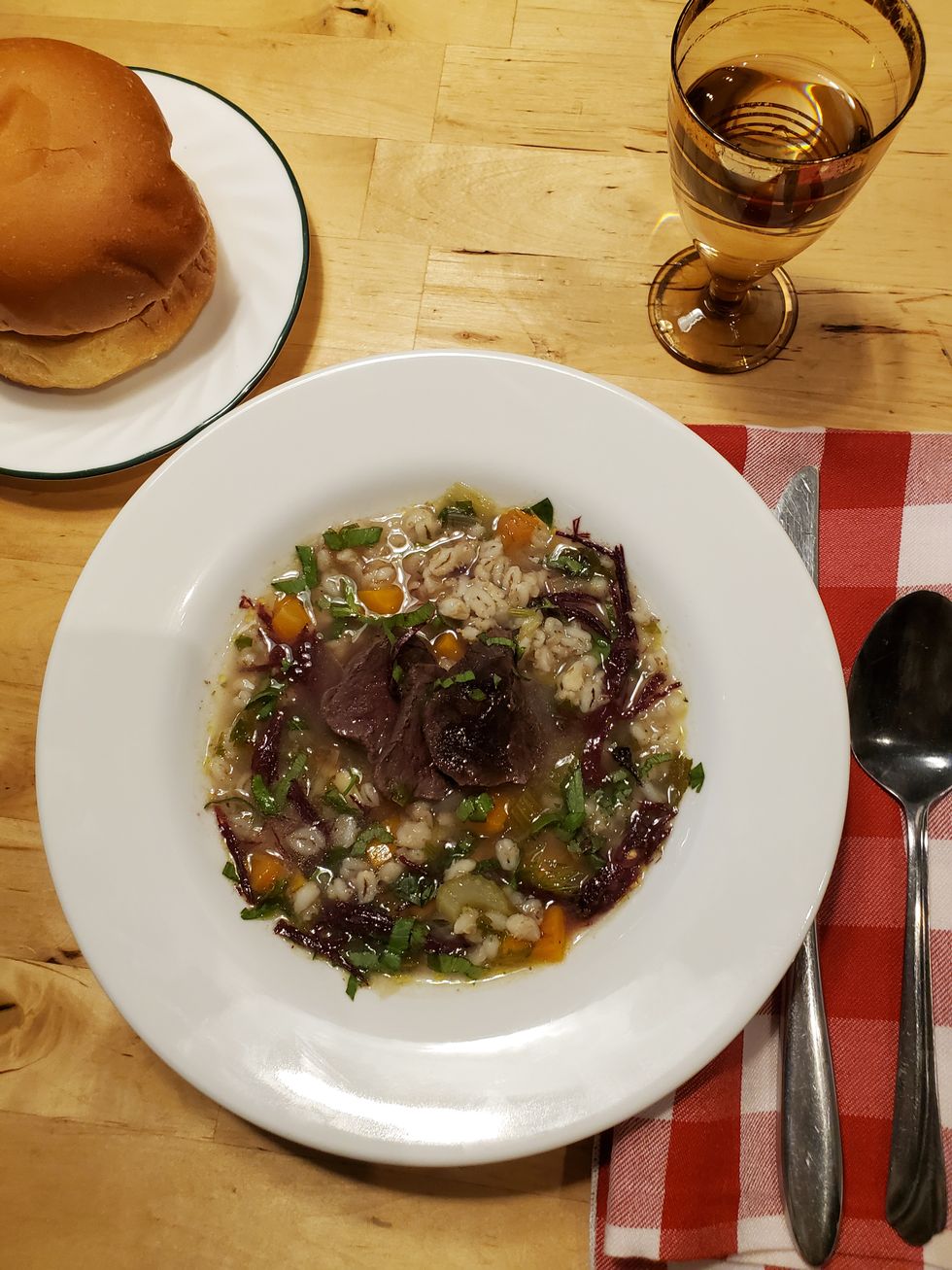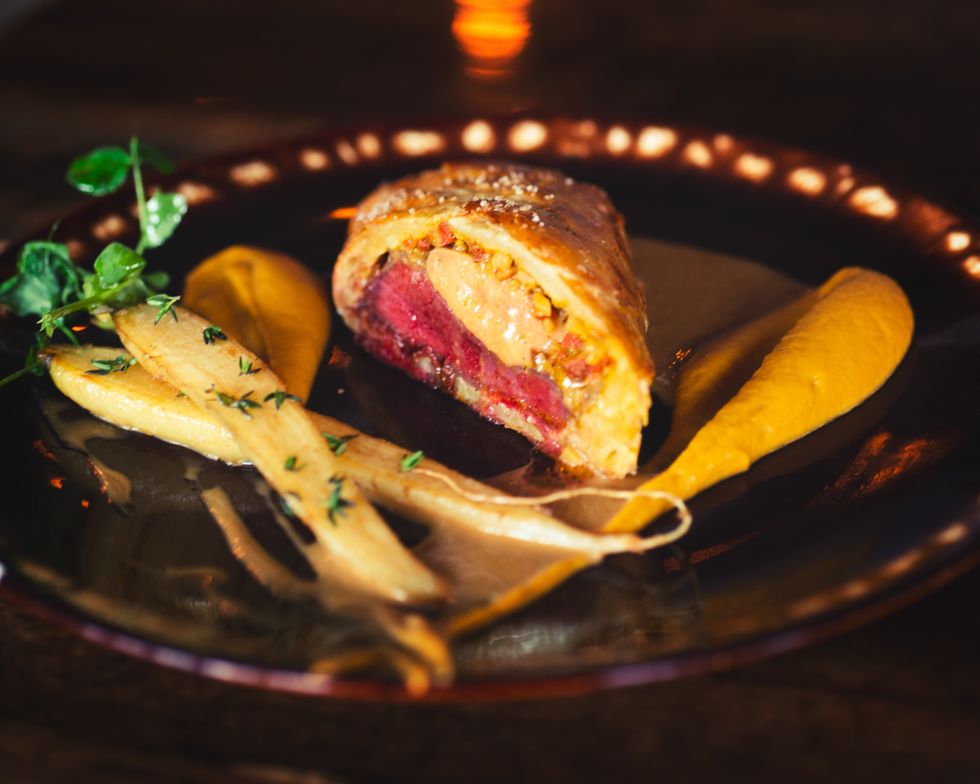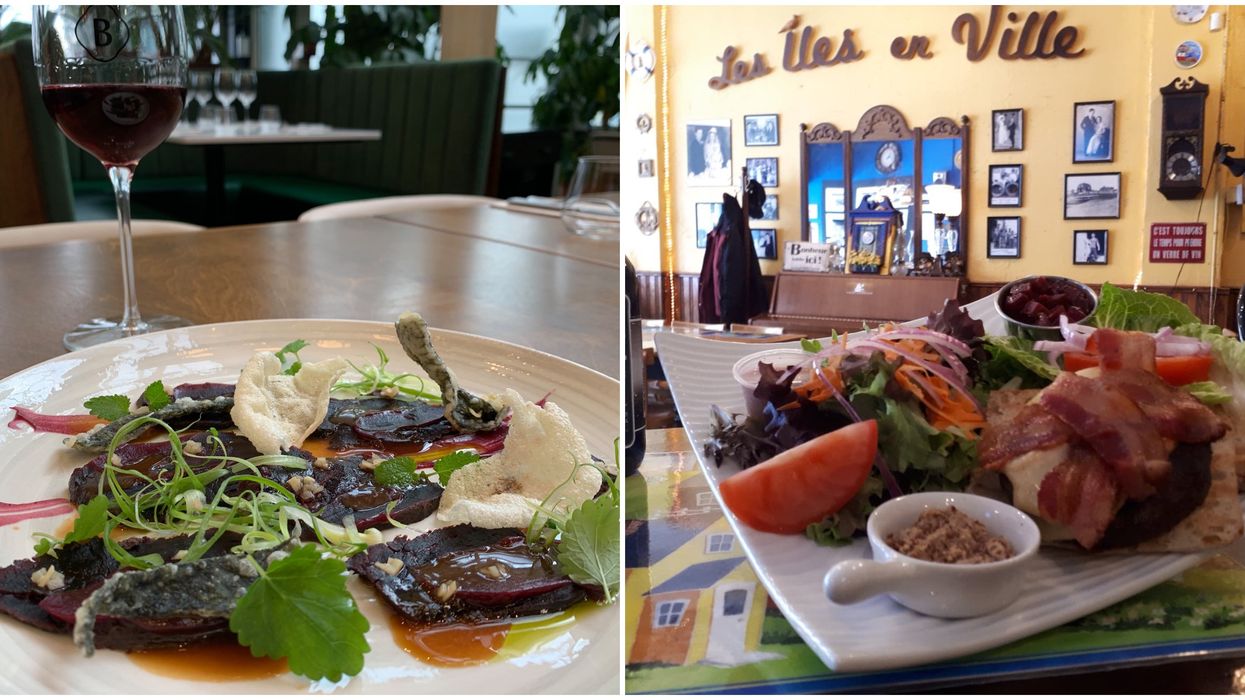You Can Eat Seal At Montreal's Phoque Fest This Week But Some People Wish You Wouldn't
Thursday night, at Maison Saint-Paul, an upscale restaurant in Old Montreal known for its gourmet cuisine and extensive champagne list, chefs were serving up delicate appetizers of seal meat: seal tartare, seal tataki, seal rillette — all part of the third annual Phoque Fest, which opened September 10 and goes until September 19.
Down the 401 at Antler, a restaurant in Toronto where a chef once butchered a deer in front of protesters, harp seal loin, grilled bread, pickled chanterelles and pearl onions with a wild blueberry jus was on the menu.
Editor's Choice: Montrealers Can Now Get 'Baked Sushi' & It's Bound To Be The Next Big Food Trend
And if you happened to be in St. John's, Newfoundland, The Jewish Deli was offering shaved smoked seal loin on a pretzel bun. Served with pickle and slaw.
Phoque Fest has drawn both condemnation from people concerned with animal rights and praise from people who think seal is a good source of ethically harvested protein.
"I’m a firm believer that this a good industry to be in and that these products are healthy," said Romy Vaugeois, national coordinator of the Seals and Sealing Network.
"It’s grown here in our nature and it’s delicious. We just need to educate people on how to cook it and how to use it."
About 20 restaurants in Montréal, Québec City, Sherbrooke, the Magdalen Islands, Toronto and St. John’s, Newfoundland will showcase this controversial food which, according to Vaugeois, is sustainably harvested, nutritious, and delicious.
Each establishment taking part in Phoque Fest is offering an entrée accompanied by a glass of wine, cocktail or beer. The cost starts at $15 and diners are asked to reserve tables in advance.

Most of the weight of a seal is blubber, explained Vaugeois, a special kind of fat that can constitute up to half the animal's weight.
So, when it comes to cooking seal, most chefs choose to work with the tenderloin or flipper to produce tartare or tataki, "which are the two most popular ways to introduce seal to people who have never tried it," she said.
"It’s a bit gamey but when it's entirely de-fatted, it tastes a bit like moose or deer," she continued.
The Phoque Fest website puts forth a number of arguments for why eating seals is a good thing.
Firstly, it claims harp and grey seal populations have recovered after decades of hunting and they now threaten fish stocks.
It also claims sealing is a vital economic activity to both Indigenous and non-Indigenous coastal communities.

Finally, it points out that seal meat is rich in omega-3 fatty acids, extremely lean, and high in protein, iron, zinc, magnesium and vitamins A, D3 and B12.
"It has a lot less impact on the environment if you think about it, as opposed to farmed meat," said Vaugeois.
"Because you don’t need to feed them, they’re already there in nature. Also, the population is really abundant and it’s renewable so it’s a good alternative protein that I think people should discover."
She added, "We import a lot of lamb from New Zealand, why wouldn't we try this exotic meat that's grown in our backyard?"
But Sheryl Fink of the International Fund for Animal Welfare (IFAW) is disputing those claims.
Her organization is behind a petition calling on Prime Minister Justin Trudeau to end the Atlantic commercial seal hunt, describing it as "cruel, unnecessary and wasteful."
Fink said the federal government has been trying to revive the seal industry through marketing and subsidies since the invention of electricity made burning blubber unnecessary as a source of fuel for light.

These efforts have been largely unsuccessful.
The number of seals killed in Canada has dropped 91% since the EU banned trade in seal products in 2010. In the mid-2000s, around 330,000 seals were harvested compared to 32,071 in 2019, according to IFAW.
This year, due to the pandemic, only a few hundred were killed. And today there are 36 international bans on trade-in commercial seal products.
"So, I think now what we’re seeing is this boutique event where they’re trying to market it as a delicacy," Fink said.
Fink said claims that seals are depleting fish stocks are false and can be traced back to 1996 when former fisheries minister Brian Tobin blamed the marine mammals for the collapse of cod fisheres on the east coast.
"Instead of saying we’re taking too many fish and we’ve mismanaged this fishery, he got up there and blamed seals, saying the seals were eating too many fish," said Fink.
But she's not overly concerned that Phoque Fest could increase demand for seal meat, which is sold in niche grocery stores across the province, because of its "fishy liver" taste.
"It's a very dark meat because seals are a deep-diving mammal and there’s a lot of hemoglobin in the blood," she said, noting she has tried the meat herself.
"I'm sure if you have a high-end chef who could dress it up with some fancy sauces and whatnot it would be different."
If you've done your research and feel that tasting seal meat is for you, Phoque Fest is the place to try a wide variety of seal-based dishes, such as seal meatloaf, seal burgers, seal meat lasagna, and barley and seal soup.

